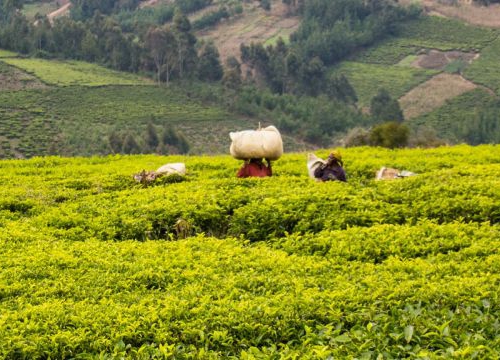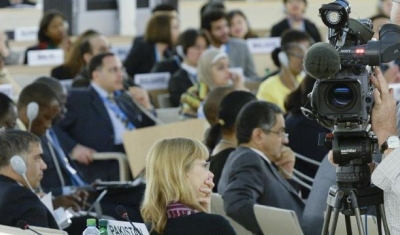How the UN Declaration on the Rights of Peasants may contribute to the UN Decade of Family Farming
Event


CIFOR
The UN General Assembly adopted, in December 2018, the United Nations (UN) Declaration on the rights of peasants and other people working in rural areas (UNDROP) as the results of more than six years of negotiation within the UN Human Rights Council.
The adoption of the UNDROP came at the perfect time to be a significant contribution to the UN Decade for Family Farming (2019–2028) that was officially launched at the Food and Agriculture Organization of the United Nations (FAO) on 29 May 2019. It is, therefore, particularly relevant for the three Rome-based UN Agencies: the FAO, the International Fund for Agricultural Development (IFAD) and the World Food Programme (WFP).
This event, co-organized with the Permanent Representation of Switzerland to the FAO, IFAD and WFP, the Permanent Representation of Costa-Rica to the UN Agencies in Rome and the Department of Political Sciences of University of Roma Tre, will present the UNDROP and discuss its contributions to the implementation of the UN Decade of Family Farming.
Welcome by Facilitator
- Francois Pythoud, Ambassador and Permanent Representative of Switzerland
Keynote Speech: The UNDROP
- Christophe Golay, Senior Research Fellow and Strategic Adviser on Economic, Social and Cultural Rights, Geneva Academy
Keynote Speech: The UNDROP and the Right to Food
- Cristiana Carletti, Professor, Dipartimento di Scienze Politiche, Università degli Studi Roma Tre
The UN Decade of Family Farming
- Marco Vinicio Vargas, Ambassador and Permanent Representative of Costa Rica
The Swiss Perspective on the UNDROP
- Benjamin Müller, Human Right Policy Unit, Swiss Federal Department of Foreign Affairs
Views of Peasants/Farmers
- Ramona Duminicioiu, Member, Coordination Committee of the European Coordination Via Campesina
Discussion: How UNDROP may contribute to the UN Decade of Family Farming
- Stephanie Hochstetter, Director Rome-Based Agencies and CFS, WFP
- Charlotte Salford, Associate Vice President, IFAD
- Marcela Villareal, Director Partnerships and South-South Cooperation, FAO
Wrap-up and conclusions
- Amarilli Villegas, Deputy Permanent Representative of Costa Rica to the UN Agencies in Rome
Social event in the garden
The event will be followed from 18:15 to 20:00 by a reception in the gardens of the Istituto Svizzero di Roma, a unique location in the Centre of Rome.









